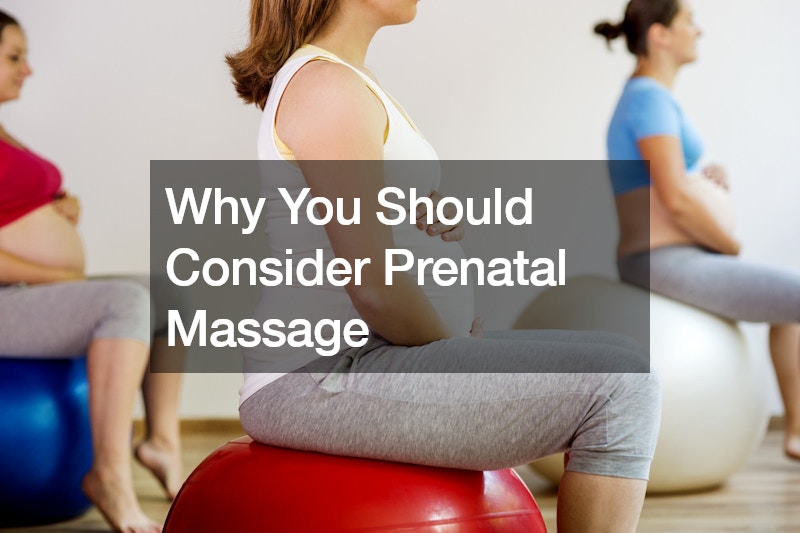Pregnancy is a beautiful journey filled with anticipation and excitement, but it also brings significant changes to a woman’s body. As the body adapts to accommodate the growing baby, it can lead to discomfort, aches, and pains. Prenatal massage offers a therapeutic solution to alleviate these discomforts and provide much-needed relaxation during this special time.
One of the primary benefits of prenatal massage is its ability to address the physical discomforts associated with pregnancy. As the body undergoes profound changes, hormonal fluctuations, and shifts in weight distribution, it can lead to tension, soreness, and muscle stiffness, particularly in areas like the lower back, hips, and shoulders.
Prenatal massage focuses on relieving these areas of tension through gentle, targeted techniques that help alleviate discomfort and promote relaxation.
Moreover, prenatal massage can be instrumental in reducing stress and promoting overall well-being during pregnancy. Expectant mothers often experience heightened levels of stress and anxiety as they navigate the physical, emotional, and psychological changes that come with pregnancy. Prenatal massage provides a soothing escape from the stressors of daily life, allowing mothers-to-be to unwind, relax, and connect with their bodies and their growing babies.
Additionally, prenatal massage can help improve sleep quality for expectant mothers. Many pregnant women struggle with insomnia or disrupted sleep patterns due to discomfort, hormonal changes, and anxiety about childbirth and motherhood. By promoting relaxation and reducing muscle tension, prenatal massage can enhance sleep quality and duration, allowing pregnant women to enjoy more restful nights.
Beyond physical and emotional benefits, prenatal massage can also support the overall health and well-being of both the mother and the baby. Studies have shown that regular prenatal massage can help reduce the risk of complications during pregnancy and childbirth, such as preterm labor and low birth weight. It can also help improve circulation, reduce swelling, and alleviate common pregnancy-related symptoms like nausea and headaches.
Furthermore, prenatal massage offers an opportunity for expectant mothers to connect with their changing bodies and bond with their babies. The gentle, nurturing touch of a skilled massage therapist can create a profound sense of relaxation and connection, fostering a positive emotional experience for both the mother and the baby.
When considering prenatal massage, it’s essential to seek out a qualified and experienced massage therapist who specializes in prenatal care. These professionals have the training and expertise to safely and effectively administer massage therapy during pregnancy, taking into account the unique needs and concerns of expectant mothers.
You can also consider a post-natal massage. After giving birth, many women may find themselves experiencing physical discomfort, fatigue, and stress as they adjust to the demands of caring for a newborn. In such cases, postpartum massage can be a valuable tool for promoting relaxation, relieving tension, and supporting overall well-being during the postpartum period.
Postpartum massage offers numerous benefits for new mothers, both physically and emotionally. Physically, massage therapy can help alleviate common discomforts associated with childbirth, such as muscle tension, soreness, and fatigue. Additionally, postpartum massage can aid in the recovery process by promoting circulation, reducing inflammation, and speeding up the healing of episiotomy or cesarean incisions.
It’s important for new mothers to wait until they have received clearance from their healthcare provider before scheduling a postpartum massage, especially if they have had a cesarean section or experienced any complications during childbirth. Once given the green light, new mothers can seek out a qualified massage therapist who specializes in postpartum care and understands the unique needs and considerations of postpartum clients.
During the postpartum massage session, the massage therapist will take into account the new mother’s physical condition, including any areas of discomfort or tension, and tailor the massage techniques accordingly. Massage therapy techniques such as Swedish massage, gentle stretching, and myofascial release may be used to address specific concerns and promote relaxation and healing.
As with prenatal massage, communication between the new mother and the massage therapist is essential during the postpartum massage session. The new mother should feel comfortable expressing any concerns, preferences, or areas of discomfort to the massage therapist, who can then adjust the massage session accordingly to ensure a safe and beneficial experience.
After the postpartum massage, new mothers may experience feelings of relaxation, reduced muscle tension, and improved mood. It’s essential to listen to the body’s cues and take time to rest and recover following the massage session. Engaging in gentle self-care practices such as deep breathing exercises, warm baths, or gentle stretching can further enhance the benefits of postpartum massage and support overall healing and well-being during the postpartum period.
In conclusion, prenatal massage offers a range of benefits for expectant mothers, from alleviating physical discomfort to promoting relaxation and emotional well-being. By incorporating prenatal massage into their pregnancy care routine, women can experience a more comfortable and enjoyable pregnancy journey while supporting their overall health and the health of their babies.
.





